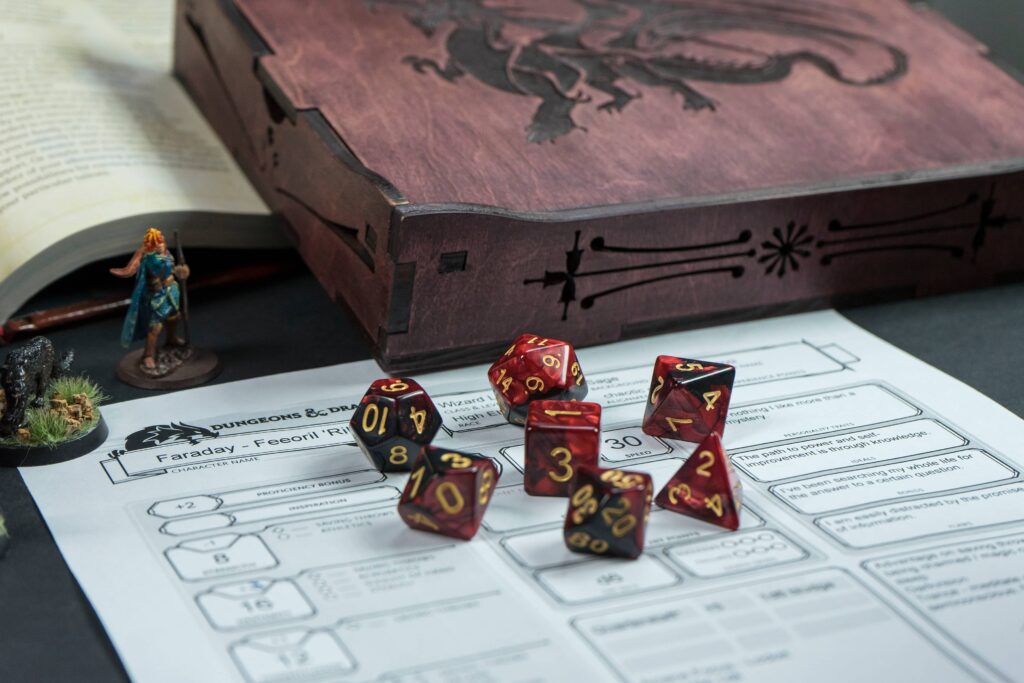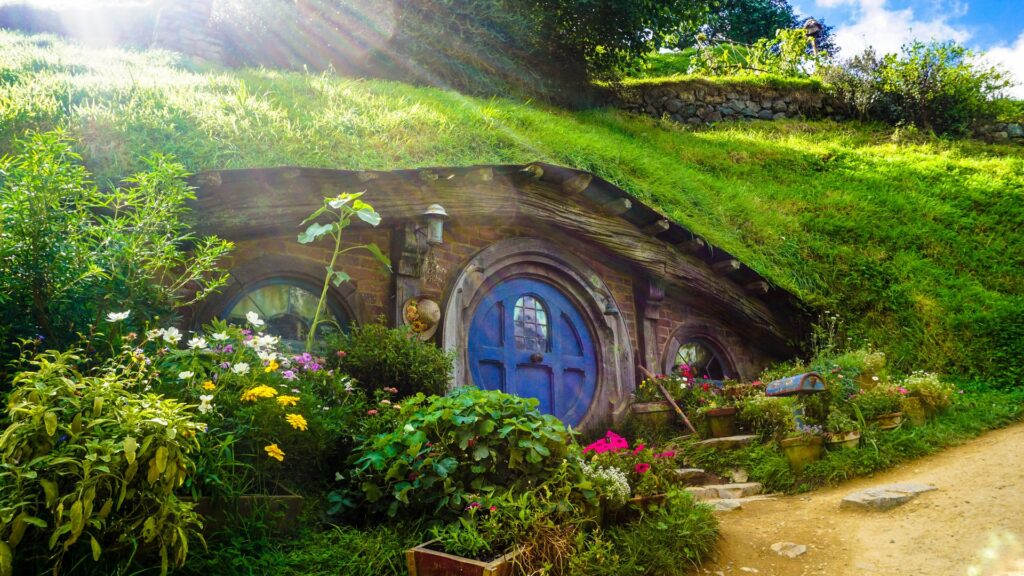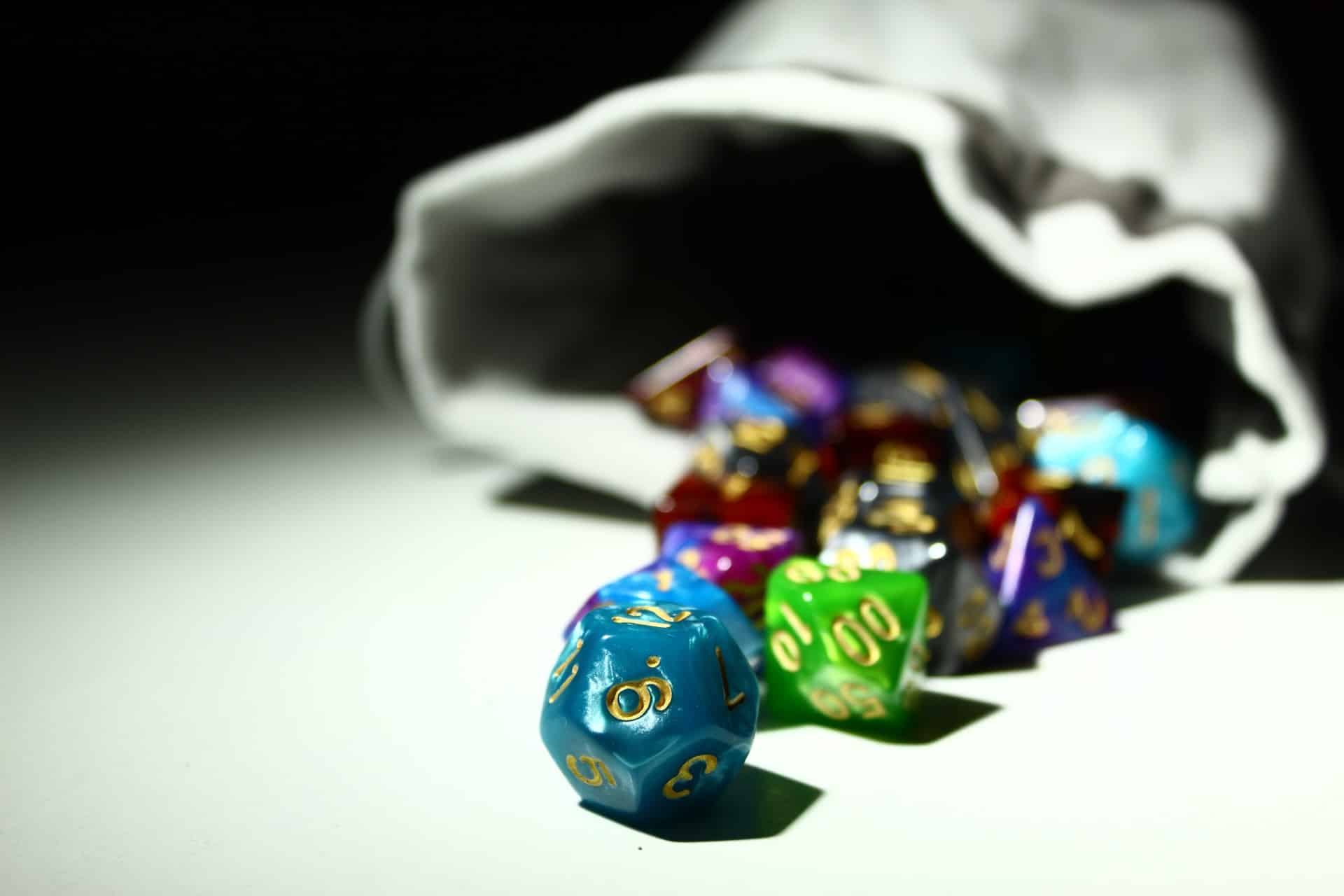I remember being 11 years old, sitting at a picnic table underneath a tree during our elementary school lunch period and playing Dungeons and Dragons with Bobby and Emiliano. We moved a lot and I don’t really remember playing in junior high. My brother and I took up skateboarding then, but by the time we got into high-school we had settled in for long enough to make friends with Rick, Brandon, Ben, and some others. We could finally start gaming again.
Those were very good times. Dungeons and Dragons is a role-playing game where players create characters and then you get together to collectively build a story about those characters, their relationships, aspirations, and adventures. Game sessions would last hours with larger stories evolving over weeks, months, or even years.
To people unfamiliar with the game, it seems like a really complicated waste of time. Think of all of the things you could do instead of participating in some collective hallucination with your buddies. So the rational argument goes.
There were other, less rational arguments.

In the early days, playing Dungeons and Dragons was associated with devil worship. I was introduced to the game in the 1980s by some older cousins. This was during the heyday of the Satanic Panic, a period of global hysteria when the world became collectively obsessed with stories of widespread ritual abuse, most or all of which were never substantiated. Even so, people were quick to link these dark, salacious stories to things that begged moral suspicion like heavy metal music and a quirky role-playing game that had their kids transfixed for hours at a time talking about magic and demons and alternate dimensions.
In addition to suspicious adults, nerd-culture wasn’t exactly celebrated in those days. When Bobby, Emiliano, and I sat around that picnic table at lunch time, the other boys running around and chasing girls would swing by to make fun of us or to snatch away our rule books, dice, and character sheets. It was an adversarial time for gaming.
As we get older and take on more responsibilities, carving out time with friends can be challenging. Work, marriage, kids, divorce, sickness, death- these are the things that keep us busy. These are heavy things and they certainly require our attention. And attention is one way that we direct and expend energy, a finite resource. It must be refreshed and replenished.
I remember losing myself in those gaming sessions. There was no burn, just an endless well of collective creativity that only got more and more exciting as the game went on. And when we finished playing for the day, it was rarely the end of the game.

The story needed to be continued, and that was our invitation to stay in touch and to prioritize getting together again.
We were building something. It wasn’t tangible. It was better.
We were learning to communicate. We were sharing experiences. We were dreaming out loud. We were experimenting with diplomacy and coming to understand cardinal notions of fair play. We were refining our imaginations and linking them together to construct a fantastic narrative that bound us inextricably.
I am a Muslim, a participant in a faith-community that celebrates and honors the unseen. Epic beasts and impossible feats play key roles in the unspooling of our Islamic mythos. Our spiritual and historical lineage ties us to men and women who were great warriors, reformed criminals, and renowned sages. My excitement and passion about this is a direct consequence of hours spent at the gaming table sharing stories with the people that I loved, stories that expanded the theater of our minds to include the rationally ridiculous and the gloriously miraculous.
Spiritual replenishment comes from the collective stoking of our imaginations.
We are pulled forward by our dreams of what might be around that next corner. Without imagination, hope and faith wither. In the Islamic tradition, we are encouraged to continue refining ourselves in hopes of attaining eternal felicity in the Gardens of Paradise. We cannot experience this. We have no reference point to help us recognize why that is worth trying for.
We can only imagine and wish. And remind ourselves of the stories so that our wishes inspire action.
Almost forty years later, I introduced my family to Dungeons and Dragons. My youngest daughter is a Dragonborn barbarian. Her sisters are a Tabaxi rogue and a Triton archer. My wife is a forest gnome who speaks with animals and is often disappointed that they don’t have more to say.
We sit around a table, eat snacks, and build a story that is better than anything they will ever see in any cinema.
Because we are the main characters.
The stakes are ours.
Leave a comment below for posterity or join us in the D&T Chautaqua Discord to discuss this post with other adventurous spirits from around the world.
